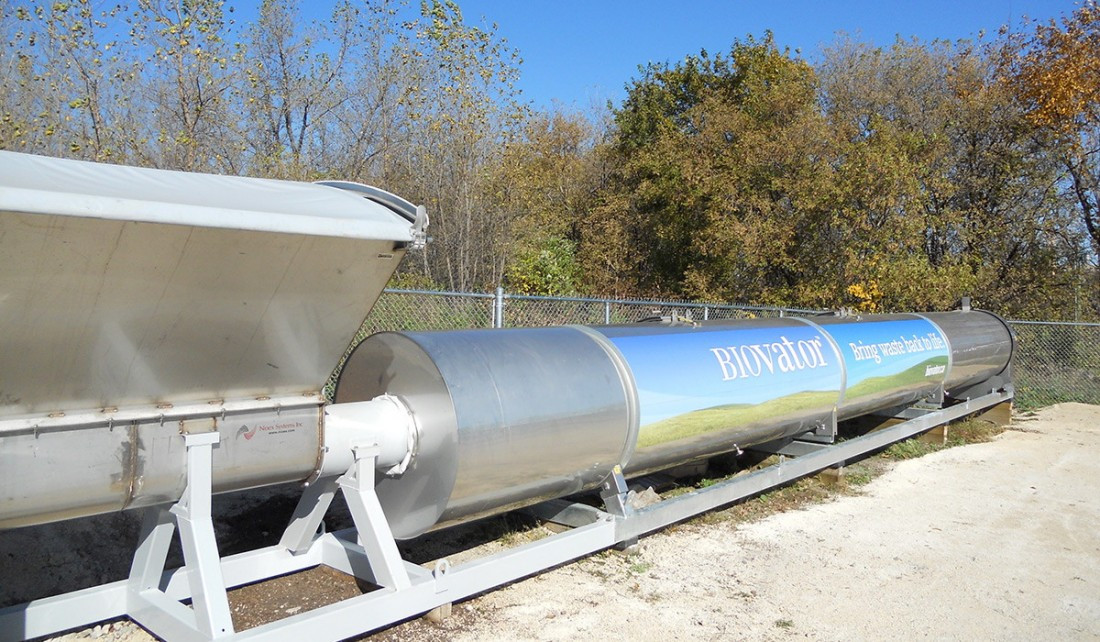A blueprint for green
University of Winnipeg composting program central to campus, city sustainability plan
Winnipeg’s post-secondary educational institutions are civic leaders in composting. The University of Winnipeg began its composting initiative in 2007, a few years after Red River College’s Notre Dame campus started in 2002, followed by the University of Manitoba in 2006.
The only one of these to have a composting program for both pre- and post-consumer material is UW, while the other institution’s systems deal with pre-consumer material only.
The UW has passed the frustrating early stages of its program and is on its way to realizing its goals, according to Alana Lajoie-O’Malley, Director of the Campus Sustainability Office.
Her efforts as an undergraduate student paved the way for her position, originally held by Mark Burch.
“I was part of a group of students that started a branch shoot-off group from EcoPIA [Ecological People in Action] that focused on campus sustainability issues and advocated for the establishment of a sustainability office,” Lajoie-O’Malley says.
“Once there was a commitment on the side of the university to have a process in place to have a sustainability policy established, I was one of students that sat on the task force to write the policies,” she explains. “I’ve basically been doing campus sustainability related work at the University of Winnipeg since 2003.”
The task force was organized in 2005.
The UW Sustainability Strategy, published in January of 2012, includes the following actions: improved composting volume tracking system; compost collection sites in all food service areas and main thoroughfares; office-sized compost bins in place in department offices; and Green Office Certification program with criteria for composting.
“There has been an overwhelmingly positive response from our guests and employees about our recycling and composting initiatives,” says Meghan Thiessen, General Manager of Stella’s Café in the Buhler Centre.
“We haven’t been able to set up composting yet for Garbonzo’s [Pizza Pub] and Starbucks,” Lajoie-O’Malley admits of the two establishments located in the UW AnX. “They haven’t been opposed, in fact they’re very supportive. The challenge is logistics aren’t in place to have a secure place for compost before it is collected.”
Executive Manager Kirsten Godbout of Diversity Foods says they are using the composting program set up by the university. The Forks Renewal Corporation takes UW’s compostable waste, where it is used on the Forks grounds after being put through an industrial in-vessel composter.
Due to their demonstrated leadership in this area, UW, UM and RRC all provided feedback on the Comprehensive Integrated Waste Management Strategy which was approved by the City of Winnipeg on October 19, 2011.
The city’s plan includes trial implementation of a source-separated organics composting program to begin this year, with city-wide implementation in 2017. The site for city composting is the Brady Road Landfill.
The most expensive capital project in the CIWMS is the composting program. The highest cost is for the construction of an organics processing facility. Estimates range between $45 million and $65 million depending on the technology.
Winnipeg’s goal of 35 per cent waste diversion by 2016 is still 30 per cent less than that of the UW.
Published in Volume 68, Number 21 of The Uniter (February 19, 2014)







